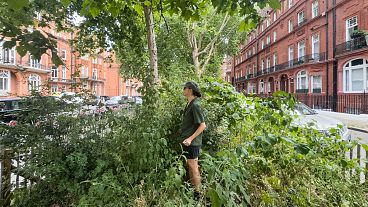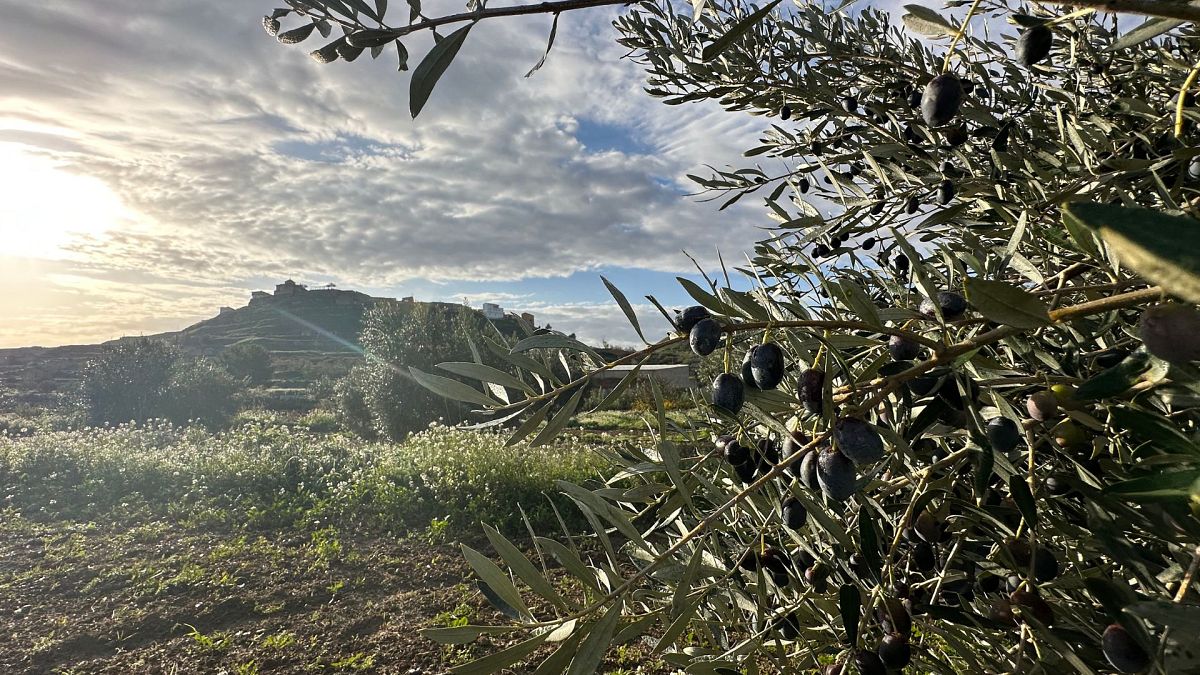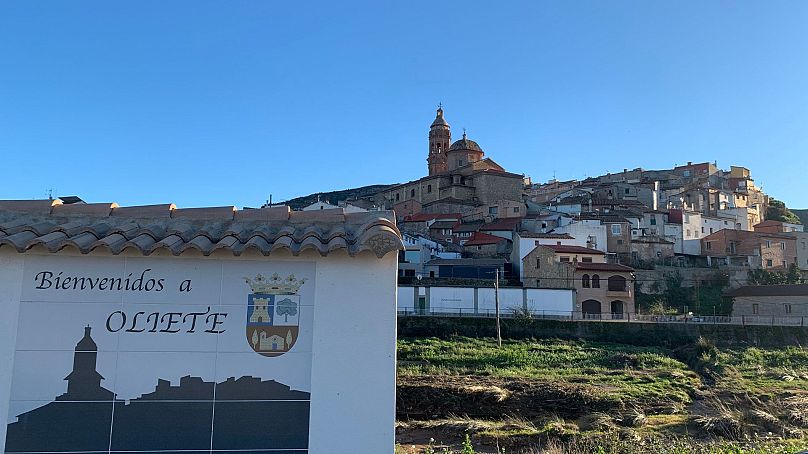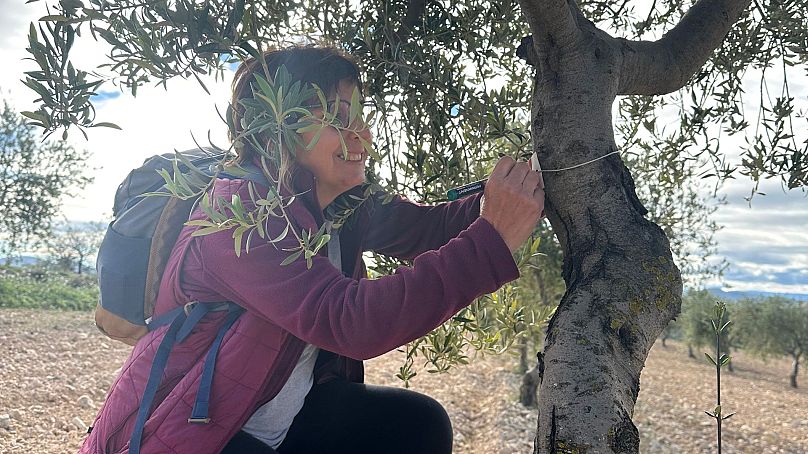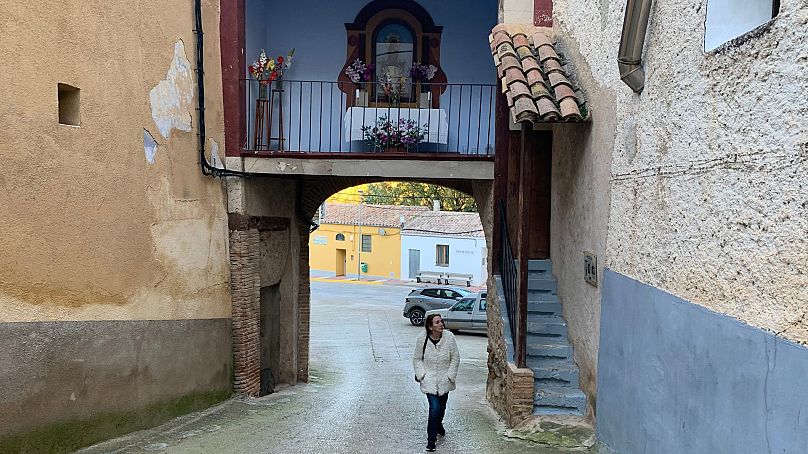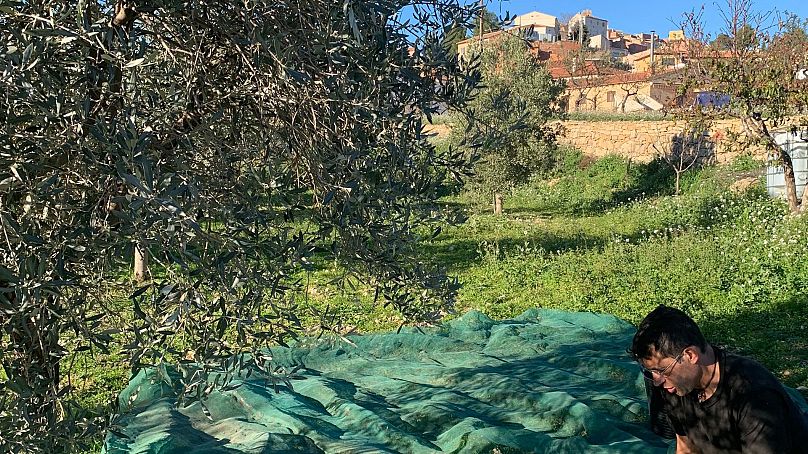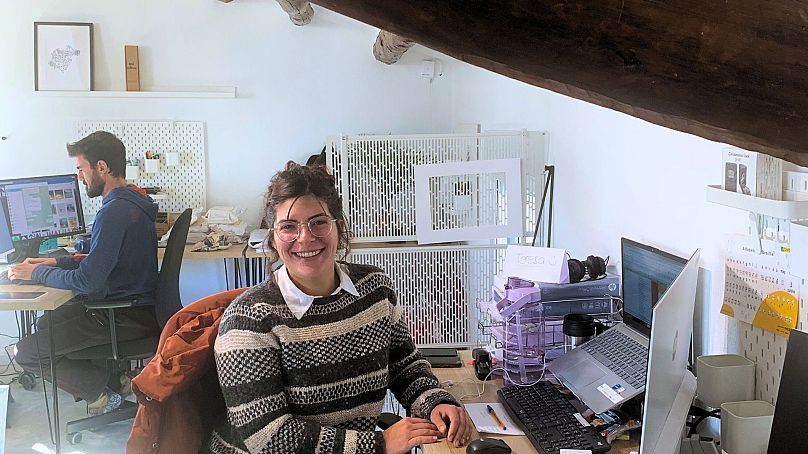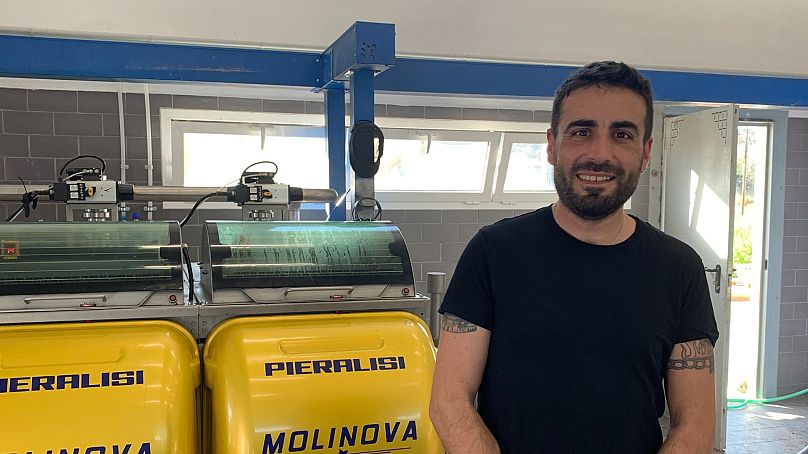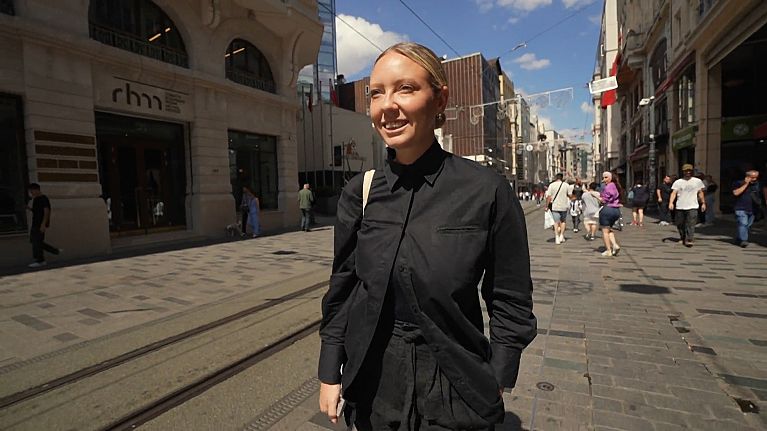Away from Barcelona's crowds, a village has used olive trees to attract digital nomads seeking a calmer lifestyle.
As I arrive in Oliete, men are wielding hand-held machines to shake the olive trees that deliver the precious fruit. It is harvest time.
Teams of five men work all day in the rugged terrain to wrestle olives from 1,500 trees so they can be made into golden liquid.
Olive oil is an unlikely way to save a dying village.
But the residents of Oliete in the remote Teruel region of eastern Spain, about a three-hour drive from Barcelona, hit upon the idea of using the village’s ‘liquid gold’ to save the small community from disappearing forever.
In a restaurant in the village, I hear the unusual sound of English being spoken.
“Property and the cost of living is very reasonable here. We come here most of the year and go to Ireland in the summer,” says Mark Rawdon, an Irish ship captain who lives in Oliete for four weeks at a time and then works for a month at sea. His girlfriend Carolina Sema, who is from Venezuela, also found a job in Oliete.
Faced with an ageing population and the prospect of the local school closing, the village started ApadrinaUnOliva.org – or ‘adopt an olive tree’ in Spanish. Its aim was to encourage people from across the world to sponsor one of the olive trees for only €60 per year - or less if you live in Spain due to NGO tax deductions.
The NGO then used €71,000 raised from these sponsors to convert a cow shed into a smart co-working space in the village to attract digital nomads, supported by €75,000 from national and regional governments and business groups. In the process, 43 new jobs were created.
The new arrivals in the village come from across Spain and far afield. Some come for a few weeks, while others stay for good.
The charm of Oliete, perhaps, is its remoteness
This is farming country, where people live off the land and raise sheep and pigs.
It’s a world away from the sun, sea and sand of the Spanish Costas. For some, this village is the ‘real Spain’.
Oliete is nestled in the Rio Martin Cultural Park, where Eurasian griffon vultures, golden eagles and peregrine falcons hover around.
Of course, the lifeblood of any village is its children. These ‘emigrants’ to Oliete have saved the school from closing. When Apadrinaunoliva.org started, there were only three pupils, but now there are 27, aged from three to 11.
Oliete’s new digital nomads are lured by the slower pace
With a current population of only 249, Oliete was in terminal decline - but new residents bring hope. In the past year alone, the community gained 19 new members.
Sandra Mairal, 50, is one of the digital nomads who stays in Oliete whenever she can to escape her demanding job in Barcelona working as an event organiser.
“I just love the slower pace of life. You can just change your chip. I can work in the co-working place and look out across the village, which is always so much more peaceful,” she tells me.
“In Barcelona, if you ask for a coffee you get it straight away. If you want the same in Oliete, you have to wait,” Mairal adds.
Teresa Sancho, 31, comes from the nearby village of Ariño, which is famous for its outdoor baths. She found work in Oliete with Apadrinaunoliva.org that, ten years on, has ‘tree adopters’ from 28 countries.
“There are about 8,000 sponsors,” she says. “They have come from all over Europe, Britain and America. Most of them come and visit their trees”.
Each sponsor can give their own tree a name if they like. In return, they receive two litres per year of olive oil and can forge a lifetime bond with the village.
A Spanish scheme supports its villages to become digital nomad havens
The people that Oliete attracts vary: Last year, a group of 18 businesswomen from around Europe spent time working in the village as part of a business fellowship, while an American school brought its pupils to see first-hand how Oliete was trying to draw talent from outside.
And how do all these visitors learn about this welcoming rural hub?
Oliete, like 30 other dying villages across Spain, joined ‘Red Nacional de Pueblos’, a national network designed to help small communities attract digital nomads.
Among Spain's 8,131 municipalities, 1,840 are classed as at risk of dying out, according to the Autonomous University of Barcelona, which has studied rural depopulation.
Carlos Blanco, a 42-year-old father-of-four, moved to the village from Barcelona in 2017 and works in a warehouse taking orders for the olive oil project. When Catalonia declared itself independent, his aquarium business collapsed after all his orders from Spain were cancelled.
“We moved here and have not looked back. It’s much more tranquil, there is a better quality of life, and it’s much better for the children,” he tells me. “If you want the big city, it is only an hour’s drive away in Zaragoza.”
In the narrow streets of Oliete, whose high walls were once guarded against invaders, there are no touristy bars and few people speak English. But there is a welcoming attitude - the community really is open to newcomers from anywhere.



